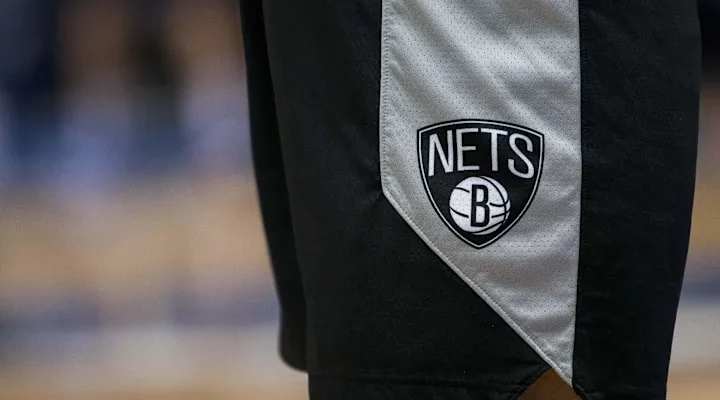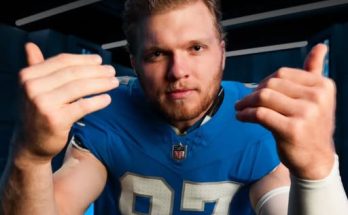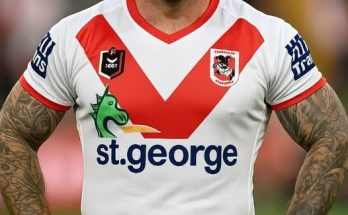The Boston Celtics, fresh off a season that showcased both dominance and the need for future adaptability, have made a strategic move off the court that could prove to be just as pivotal as any on-court acquisition. In a calculated front office upgrade, the Celtics have hired a former Brooklyn Nets scout to a key executive role, signaling a renewed emphasis on scouting, player evaluation, and long-term roster construction. This decision doesn’t just add another name to the payroll—it reshapes the philosophical backbone of how the franchise intends to remain a perennial title contender in the ever-competitive NBA landscape. While the identity of the scout hasn’t been publicly elevated to star status, their track record in Brooklyn speaks volumes. The Nets, in recent years, have been lauded for their ability to identify undervalued talent and piece together rosters both with and without marquee names. The Celtics, by targeting a front office professional with that level of scouting pedigree, are clearly aiming to balance their star-heavy roster with a pipeline of developmental prospects and under-the-radar acquisitions that can sustain success in a salary-cap era.
Boston’s front office, helmed by Brad Stevens since Danny Ainge’s departure, has quietly developed into one of the most forward-thinking operations in the league. While Stevens made headlines with major trades and bold re-signings—such as extending Jaylen Brown and building a championship-worthy supporting cast—this latest move reflects the Celtics’ intent to sharpen their behind-the-scenes mechanisms. A top-tier scout doesn’t just identify obvious talent; they find fit. They discover the glue guys, the role players who can slot seamlessly next to Jayson Tatum and Brown without demanding the spotlight. They analyze personality, work ethic, and growth potential in ways that traditional stats fail to capture. This is a layer of detail that has defined the difference between good teams and great dynasties over the past decade.
What makes this hiring especially significant is that it comes during a time when the Celtics are flush with short-term success but must navigate looming financial and strategic challenges. Jaylen Brown’s supermax deal kicks in this season, and Jayson Tatum is expected to follow with an even larger extension. That means the Celtics will need to find low-cost contributors and future gems in the draft or free agency who can contribute without disrupting the cap sheet. This is precisely where an elite scouting eye becomes indispensable. The new hire brings not just experience but an East Coast familiarity and understanding of the dynamics between G League development, collegiate growth, and even international pipelines that remain underutilized by many NBA teams.
Under Stevens’ direction, the Celtics have already struck gold with talent like Payton Pritchard, who emerged as a reliable rotational piece, and Derrick White, whose acquisition proved vital to the team’s identity. But continuing to uncover that kind of value will be critical moving forward. With the margins tightening financially, the Celtics cannot afford to miss on draft picks or make poor mid-level signings. A front office addition with a track record of identifying overlooked prospects or forecasting breakout potential is a cost-effective way to hedge against those risks. Moreover, the Nets’ scouting department—where this individual developed their reputation—has long been praised across the league. Brooklyn unearthed gems like Caris LeVert, Jarrett Allen, and Nic Claxton, all of whom developed into solid contributors or trade assets. That’s the kind of talent development pipeline Boston hopes to replicate.
In terms of process, the Celtics have shown a willingness to think unconventionally. Stevens himself was an unorthodox choice as President of Basketball Operations, but his basketball acumen and eye for chemistry have already paid dividends. This new hire fits that mold—someone who may not be a household name but whose influence will be felt in the moves to come. It’s a reflection of a team that doesn’t just want to win now but intends to win sustainably. The NBA landscape is changing rapidly. The new collective bargaining agreement penalizes teams for excessive spending and luxury tax abuse, so maintaining competitive rosters under tighter budgetary constraints requires precision from the front office. Bringing in a seasoned scout who understands player value beyond surface-level analytics ensures that the Celtics are arming themselves with the tools to navigate that new terrain.
Additionally, this move gives more weight to the Celtics’ commitment to building out a robust developmental system. Their G League affiliate, the Maine Celtics, has become a focal point for grooming young players, and the presence of an elite scout with G League familiarity will further enhance the connection between Boston and its feeder system. If this new front office member can help identify players who may not be Day 1 contributors but could blossom into impactful pros with seasoning, then the value of every two-way contract and exhibit-10 deal becomes multiplied. A well-run development pipeline means Boston can keep reloading without always needing to dip into free agency or sacrifice assets for trade upgrades.
It’s also worth noting the cultural fit. The Celtics have long valued a certain type of player—high-IQ, defensively engaged, unselfish, and adaptable. These are traits that don’t always leap off the page in a stat sheet but are often noticed by keen scouting eyes who watch tendencies, body language, and response to adversity. By hiring someone trained in the Nets’ scouting culture—which placed high value on mental fortitude and versatility—the Celtics are ensuring that their front office continues to identify players who “get it” on and off the court. That’s crucial for locker room harmony, coaching execution, and long-term culture sustainability.
The timing of this hire also sends a subtle message to the rest of the league. While the NBA offseason often centers around blockbuster trades, superstar movement, and coaching changes, it’s the less-publicized moves—like this one—that often set the table for future dominance. By shoring up their front office with someone who has seen firsthand how to navigate rebuilds, retools, and sudden roster pivots, the Celtics are preparing for every scenario. Injuries, regression, or free agent losses are inevitable in the NBA, but a fortified front office can respond swiftly and smartly.
Fans might not immediately feel the impact of this hire. There won’t be press conferences, jersey unveilings, or introductory highlight reels. But over time, the fingerprints of this new addition will appear in the players Boston drafts late in the second round who surprisingly make the roster. In the undrafted free agents who develop into contributors. In the savvy G League pickups who seamlessly transition to NBA minutes. In the way Boston builds a team that feels cohesive and sustainable year after year. These are the invisible wins that accumulate behind the scenes and eventually manifest in banners and rings.
And while Jayson Tatum and Jaylen Brown remain the undisputed cornerstones of the franchise, it’s moves like this that keep the machine running around them. The Celtics understand that championship windows are fragile and that they can close just as quickly as they open. Sustaining that window requires as much off-court vision as on-court execution. This front office hire signals that Boston doesn’t plan to waste the prime of its stars. Instead, they’re investing in a future that ensures the next chapter is as bright as the current one.
In an NBA era where superstars grab the headlines, it’s often the silent architects behind the curtain who deserve just as much credit. The hiring of this former Nets scout could turn out to be one of those moves that doesn’t dominate the daily sports cycle but proves vital in determining the long-term direction of the franchise. For a team that’s already one of the most storied in basketball history, the Celtics continue to operate with the intelligence and foresight of a franchise that knows how to evolve. The message is clear: Boston isn’t just aiming to win now—they’re building an empire meant to last.



